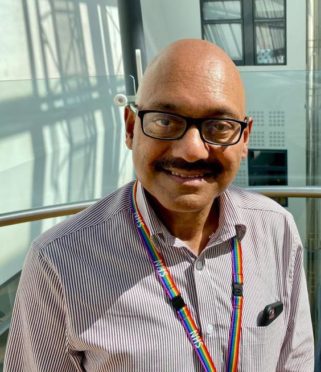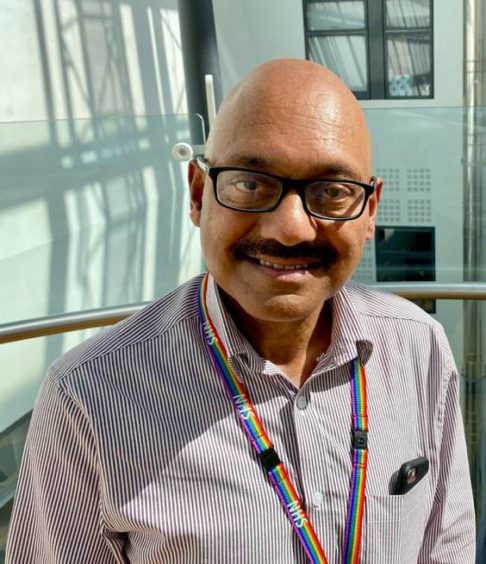Groundbreaking research into asthma treatment, started in Tayside, has proven to be successful following the biggest study of its kind.
Trials which began in Dundee and Perth almost two decades ago have been studied in Europe and found to be “globally significant”.
The research found tailoring treatment in teen patients, according to their genetics, can significantly improve controlling asthma symptoms.
More than one million children in the UK suffer from asthma and for many traditional treatments such as inhalers are not effective.
The landmark Paediatric Asthma Controller Trial (PACT) by University of Dundee and the Brighton and Sussex Medical School has shown “genetically guided therapy” showed better results than commonly used asthma drugs.
Professor Somnath Mukhopadhyay began trialling tailored treatments with NHS Tayside, Dundee University and around 650 local children in 2003, when he became frustrated because standard treatments, such as the most commonly-prescribed inhaler, did not help many of his young patients.
One of his patients, Ewan MacKintosh, now 25, took part in the trial as a young teen.
He said when he was given montelukast, a drug which helps stop airways from narrowing, his symptoms “virtually disappeared overnight”.
Professor Mukhopadhyay, now chairman in paediatrics at the Brighton and Sussex Medical School and chief investigator for the trial, said: “I hope that the results of this trial will have globally significant implications on the treatment of asthma in young people, with this particular genetic susceptibility to poor medicine response in severe asthma.”
PACT is the first randomised controlled trial of its kind.
It showed genetically susceptible patients were given montelukast, rather than the commonly used asthma drug, salmeterol, along with an inhaled steroid, which is the currently recommended treatment.
Montelukast was more effective in reducing severe symptoms in 241 participants aged 12 to 18, compared with the traditional combination.
Potential game-changer
Professor Brian Lipworth, head of the Scottish Centre for respiratory research at Dundee University, said the trial’s success means they will now consider using the same method to treat other patients.
“This is first ever randomised controlled trial in younger people looking at tailoring therapy according to the patients’ genetic make-up, making this a potential game changer for young patients with asthma to improve outcomes,” he said.
“Moving forward, our aim is to replicate this study in children with severe asthma who are much younger, such as those from four years and upwards with more severe asthma, who have the same genetic susceptibility.
“We need to understand the barriers to implementing this new way of managing children with asthma within the NHS and other healthcare systems worldwide, so that eventually every child in the world can benefit from precision medicine.”
A paper on the trial has been published by the European Respiratory Journal, after findings were presented to the European Respiratory Society last year.






